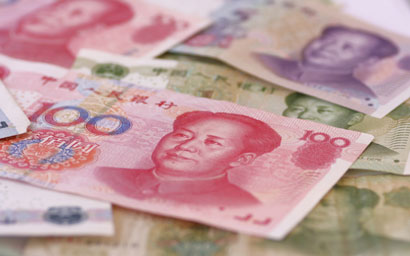The world economy should still grow at a decent pace despite the 3% August devaluation in the Chinese currency, the renminbi, which has been interpreted as a signal of a “deeper economic malaise in China”, says Baring Asset Management.
However, a sudden and substantial further devaluation of the Chinese renminbi has the potential to be a “game changer” in global markets.
“You might call this a ‘red swan’ event,” says Marino Valensise, chairman of the firm’s strategic policy group, who is trying to understand why China devalued its currency.
“While the sudden devaluation against the US dollar [in August] was a negative surprise for investors, the modest (3%) extent of it leaves us with additional questions.”
Was this a one-off measure, engineered by China to please the International Monetary Fund and gain access to the exclusive Special Drawing Rights club? If so, no further weakness would be envisaged and there would be no further implications for world growth dynamics, he says.
But a more dangerous development would be if the devaluation was a pre-emptive action by the Chinese authorities, concerned that a Federal Reserve rate rise would lead to a further appreciation of the US dollar and, therefore, of the renminbi, managed under a semi-peg arrangement.
“Under this interpretation, China would have concluded it was not willing to tolerate the effect on exports of a further rally in its currency. This would be a more dangerous development, as it could signal the start of ‘death by a thousand cuts’ for the renminbi – which could be poisonous for the world economy.”
The renminbi still exhibits strong performance over the past three years and the strength of the renminbi and the weakness of other world currencies has been a positive factor for the world economy, though it has also been a drag on China’s, Valensise says.
But a disorderly weakness in the renminbi and a weaker global economy would ultimately also be bad for China, he says. For example, large US dollar-denominated borrowings by local corporates do not allow much space for further competitive currency devaluations, as the cost of servicing this debt will become more and more costly.
“So we must assume that the magnitude of any further currency move will be carefully controlled by the People’s Bank of China.”
©2015 funds europe





